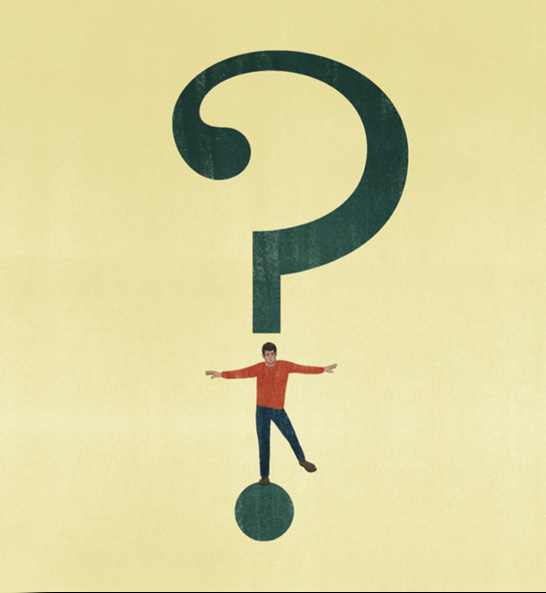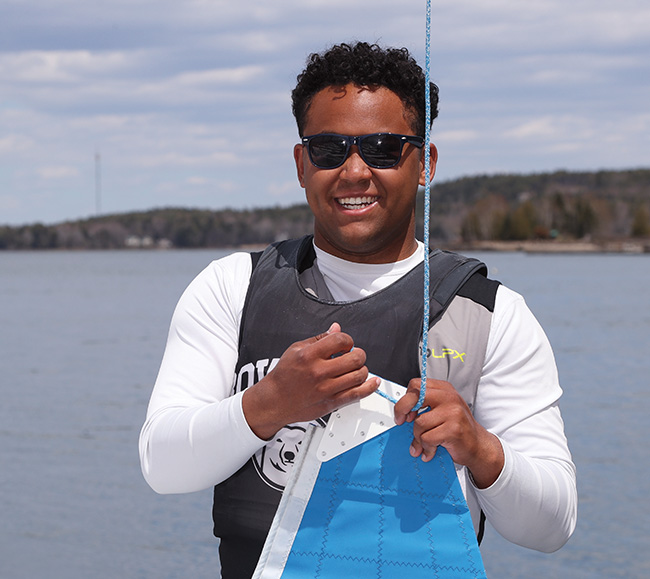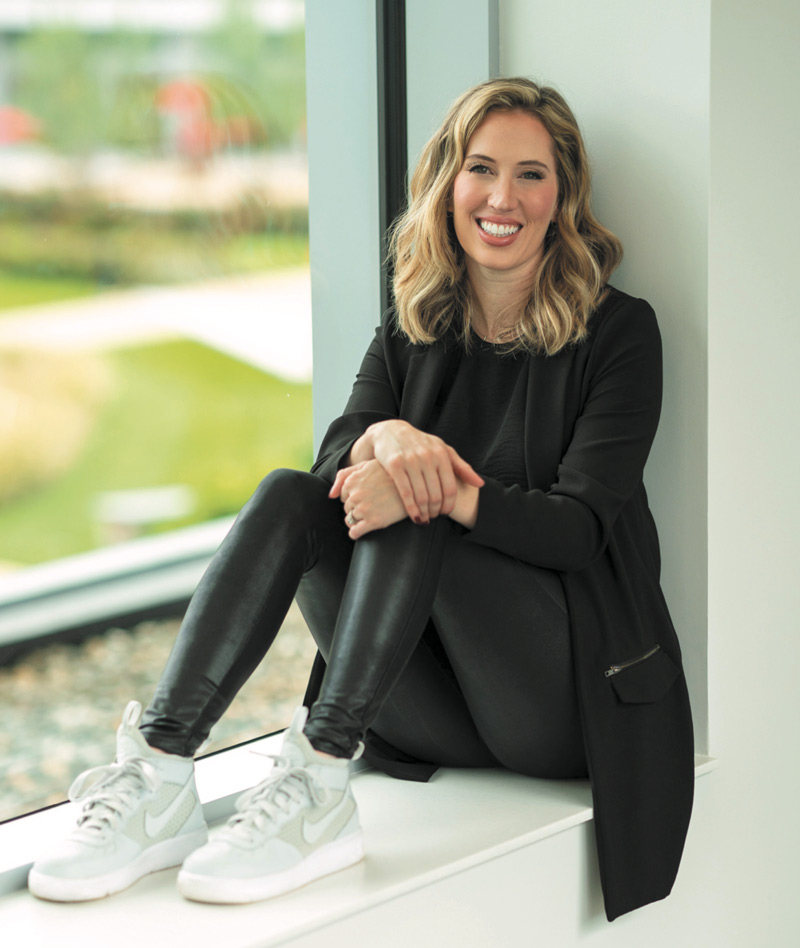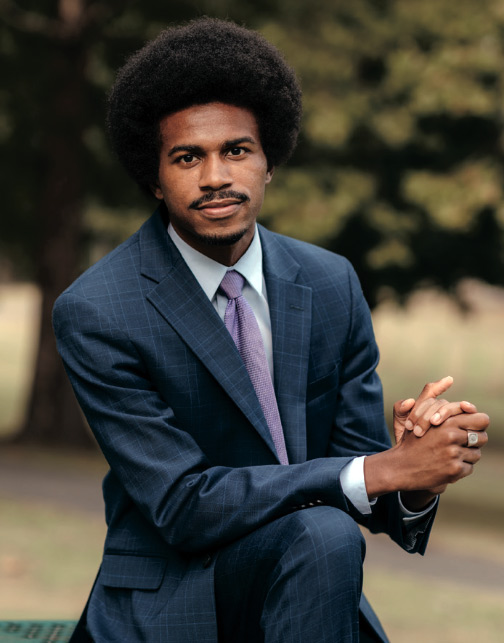Getting Them Laughing
By Bowdoin Magazine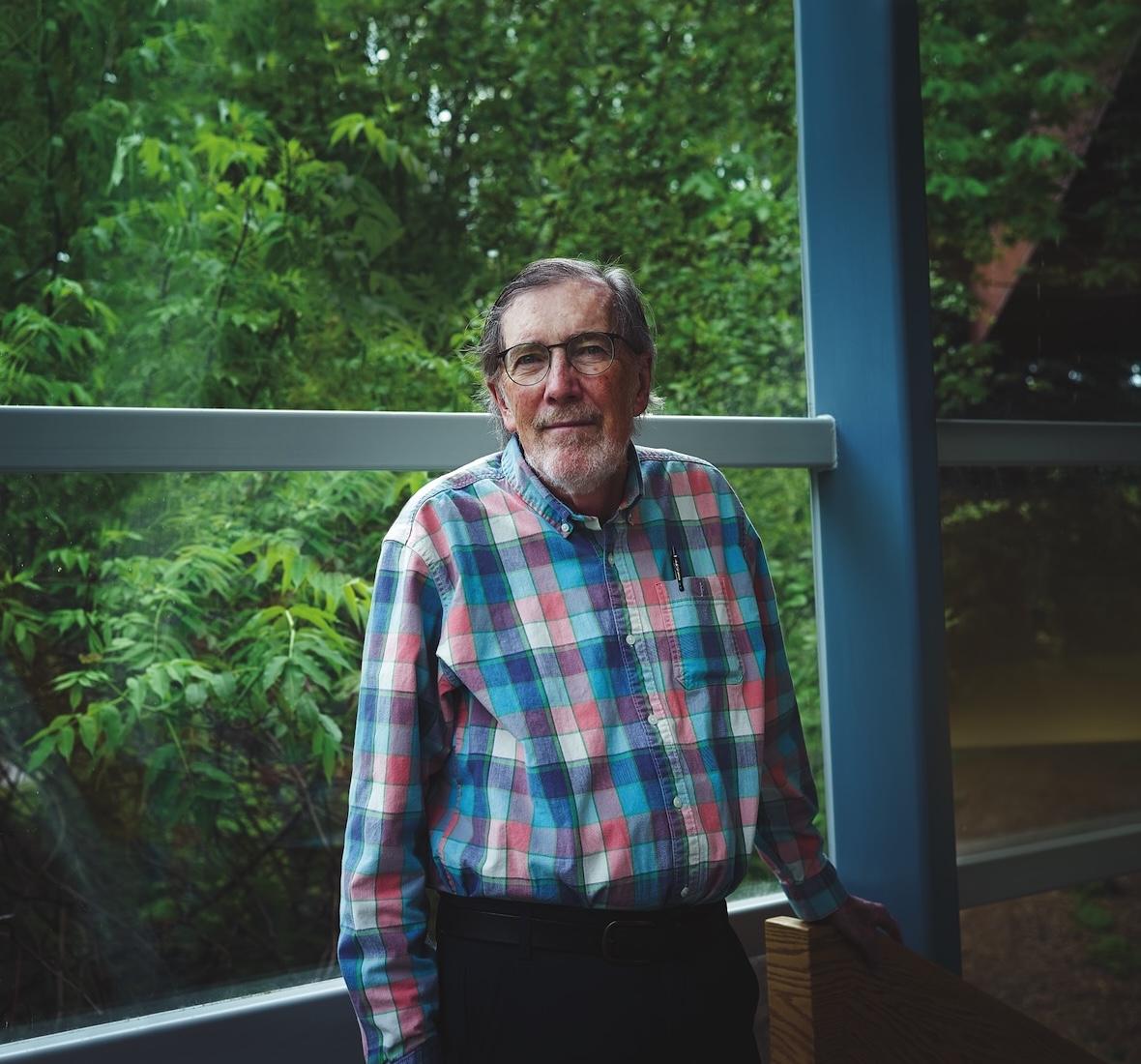
What drew you to your work as a chaplain?
Genes and/or my upbringing. My mother’s father was a New Testament scholar who taught in a theological seminary—and my father was one of his students who became a local church pastor. Both were very much in the Social Gospel tradition of progressive involvement in society, and both were very much in the liberal wing of the Methodist movement ,which saw science, literary criticism, historical study, and “other” religions as allies, not enemies, of Christianity.
As I considered grad school after completing a history major at Bowdoin, I began to think of an academic career and pursued that via a divinity degree at Yale (where William Sloan Coffin was already a legendary university chaplain) and a PhD in the history of Christianity at Duke (where I did part-time work as an assistant in the United Methodist campus ministry).
After all the schooling, the academic market was tight, but I was able to find part-time teaching and campus ministry positions in the Maryland-DC area for about a decade. I realized at the time that I was combining the vocations of both my grandfather and my father, representing the academic and pastoral sides of religion I had grown up with.
What do you find rewarding, exciting, challenging about your work?
I found both teaching classes in a religious studies department and connecting to the needs, interests, challenges, and social involvement of students (and colleagues) very rewarding. It sometimes seemed like having two jobs, but in interesting ways I felt there was crossover as well. Most professors recognize their “pastoral” roles with their students, just as college and university chaplains understand themselves as extracurricular teachers along with their roles as supporters of campus spiritual religious life and growth in its many forms.
You’re known for your humor, and particularly for its unexpected Monty Python style. How do you think humor fits in with your role as a chaplain?
Humor and religion are not mutually exclusive. We’ve all heard the expression “I hope God has a sense of humor.” And church attenders seem happy when a preacher illustrates their point with a joke. But perhaps only people who have spent time studying in a divinity school will recognize the (nearly) irreverent extracurricular jokes, parodies, and full-fledged comic productions that inevitably take place there.
For example, a bunch of friends and I produced a very short film during the “Death of God” controversy in the late ’60s. Fortunately, it no longer exists even in the original 8-mm home movie format. But the title gives a sense of how silly we were in the late ’60s: “Count Dracula meets Thomas J. J. Altizer OR God is Un-Dead.” In short, humor not only catches people by surprise, but also helpfully opens up the questions and inconsistencies of life and learning—in a way that is hard not to enjoy and learn from.
I first watched Monty Python in England in 1970, while over there doing dissertation research, and was hooked! In all their silliness they opened up “something completely different,” which can very easily raise theological and ethical issues—from The Meaning of Life to Life of Brian and beyond. And as a chaplain standing up to offer an invocation at commencement, I was always working with a genre that most people thought they understood, routine and not very interesting. So, if I succeeded with my job, I got them laughing and paying attention (not necessarily with Python quotes!) and maybe they actually heard a message that connected them to important issues and wider realities.
How did your career unfold? How did you end up at Willamette?
After returning to this country with all the data I had collected in England, I had two needs: some time and space to actually write a dissertation and gainful employment (hopefully of an academic kind) to help support myself, my spouse, and our child. The short story: I was appointed as a part-time pastor at a rural Maryland United Methodist Church, to which I was able to add various occasional gigs at local theological seminaries and a small liberal arts college (now known as McDaniel). The college paid me per course, and a local ecumenical group gave me a tiny salary to serve on the same campus as a director of religious activities.
From there my résumé was beginning to make me think that I was not likely to get hired as a tenure-track assistant professor. But watching the academic ads, I figured I did look qualified to be a chaplain and (given the PhD) an adjunct member of a religious studies department. Willamette University (“first university in the West,” founded in 1842) was looking for just such a person. And, as a guy who had never even traveled any further west than Indiana, I was assured by a couple of divinity school buddies who had interned in the Willamette Valley—and a wife who had served as an assistant chaplain at Crater Lake National Park—that Oregon was a special place. I don’t know if two other divinity school friends, by then in academic positions, mentioned my sense of humor in their letters of recommendation. But something worked, and I got the job in the summer of 1985 and lasted until my retirement in 2012.
Are there ways that your academic or extracurricular work at Bowdoin has come into play in your life or career?
I didn’t just acquire information in Bowdoin classes, but experienced amazing models of undergraduate teaching. Professors knew their stuff, but they were also enthusiastic about it, and they actually knew their students. Some examples: Nate Dane, who introduced us to the “naughty bits” of Catullus in Latin class and befriended jocks to the extent that (allegedly) New England prep schools were riddled with Bowdoin grads who coached hockey or football and taught classics; Bill Geoghegan, who nobly represented religion as a legitimate academic subject and, because he was an ordained Methodist from Delaware, gave my nervous Maryland parents and grandparents a sense that I would be OK so far away. He, by the way, was the closest thing to a college chaplain we had in that day. He helped people with their theological questions and counseled folks like me who were considering seminary after graduation; and Roger Howell, my fellow Baltimorean, who had just returned from Oxford as a Rhodes Scholar and a DPhil and was smart enough to thrive in its world class history faculty. He both challenged and supported a scholarly wannabe like me to write an honors thesis on Christian socialism in mid-nineteenth-century England.
Outside the classrooms, the ability to hear speakers on campus like Dr. Martin Luther King Jr. and the four-time Socialist candidate for president, Norman Thomas, reinforced my own growing up in liberal Protestantism (as did the Rev. Blake Ellis, minister at the Pleasant Street Methodist Church that a handful of undergraduates repaired to on Sundays).
Also, my interest in broadcasting got me involved in WBOR, which led me to a weekend news gig at WGAN radio in Portland. It was basically a very quiet “rip and read” routine, making big use of the Associated Press machines in their newsroom and the rewriting abilities of a retired Press Herald reporter who helped with local stories. The job was routine—at least, until the weekend of JFK’s assassination. I was on duty two days later, watching on TV when Lee Harvey Oswald was himself murdered in the Dallas police headquarters, and duly delivered that bulletin to WGAN listeners. That experience got me more deeply interested in politics, and for a time I thought about a career in journalism.
The Civil Rights Movement was already on all our minds, as well—I had attended the March on Washington with my dad earlier that same summer when we got on a school bus in nearby Annapolis and were privileged to experience Dr. King and his friends in action, as well as to feel a sense of community among folks of all ages, races, and religions. Senior year, I joined up with other Bowdoin students in returning to our various home communities during spring break to help recruit students of color. Those experiences led me after my first year of divinity school to volunteer with the Student Interracial Ministry. We theology students from the North lived on the Black side of Albany, Georgia, and worked under the Black leadership of the Albany Movement and the Student Nonviolent Coordinating Committee.
What brought you to Bowdoin?
One of my father’s parishioners in Maryland owned a camp on Meddybemps Lake in Washington County and offered it to our family for a month every summer. So, I had a sense of Bowdoin, having seen the campus during our trip down east one summer. And, yes, the celebrated Meddibempsters vocal group that I noticed in the Bowdoin publicity actually meant something geographical to me.
What inspires you?
Continuing to read and learn. Enjoying the many beautiful parts of my adopted state. Participating when possible in the various struggles for peace, justice, and sustainability—and watching with pleasure as my kids and grandchildren begin to follow in that direction.
Is there something about your work or life that others would find surprising?
People who know me as a university chaplain probably don’t realize that I did quite a bit of scholarship on the side. Despite never teaching a course at Willamette on the Wesley family, Methodism’s founders in eighteenth-century England, I did publish papers, articles, and book chapters on that bunch. Perhaps the most important item was a volume I edited for Oxford University Press, Susanna Wesley: The Complete Writings. It was my attempt to collect together all the manuscripts of the mother of the two founders, John and Charles, and at the same time underline the importance of women’s unacknowledged contributions to religious history just as third wave feminism was cranking up in our own world. By the way, this old dude was immensely happy that Bowdoin finally recognized the need to bring women on board in all aspects of its work and play. It’s a much happier, healthier, and more influential place because of that!
People who only know me as a denominational historian probably don’t understand what chaplains actually do. Part of the answer is in a book Willamette just published in the wake of a grant from the Lilly Endowment to encourage undergraduates to consider vocations with strong religious and/or ethical foci. Praying with Charlie: 27 Years of Meditations, Prayers and Benedictions or How Monty Python Infiltrated Willamette University is a sort of history of the university during my years there (1985–2012), when I sought to focus, sometimes with humor or just plain silliness, on what various occasions seemed to demand. I tried to do exactly what the two more recent fellow Bowdoin graduates attested to in this past winter’s edition [Winter 2025] of this magazine: practice the art of being “seriously funny.” And in the annotations to the various praying occasions, I set the context clearly for the reader by describing the date—whether a specific Commencement or other regularly occurring part of the year or a surprise occasion, such as AIDS Vigils, anti-war rallies, or the 9/11 attack all-campus gathering. I hasten to add that not every occasion was right for a Pythonic intrusion into an invocation! I hope that the humor, where applied, got through and helped people understand that praying can be at least part of Paulo Freire’s famous dictum in his Pedagogy of the Oppressed: “Action and reflection upon the world in order to change it.”
Is there something about YOU that others might find surprising?
For a guy whose frat brothers encouraged him to tend bar in the basement during party weekends (because, as a preacher’s kid, I didn’t drink and so wouldn’t take swigs out of their bottles), I developed a taste for good beer. First, my Episcopalian and Lutheran divinity school buddies introduced me to the habit, and then during graduate school I spent some good times in English pubs when not in the British Museum’s library or the Methodist archives and even did some home-brewing on both sides of the Pond. Migrating to the Pacific NW just as the craft beer movement was getting started gave me a chance to sample all sorts of good stuff! (And the United Methodist Church finally relented on “total abstinence” from alcohol as a requirement for ordination, so I could hold my head high and greet co-religionists in a wine shop or liquor store.)
Also, in addition to teaching some general education courses like “Religion and America,” I developed two other fairly popular specialties: “Liberation Theology and Social Change,” and “Soul Food: Eating and Drinking in Western Religion.”
What do you enjoy doing in your spare time?
At this point, it’s all spare time! And I enjoy reading (with a Zoom book group of retired religious historians), walking local trails with my wife, teaching an adult Sunday school class called “Digging Deeper in Theology and Ethics,” and visiting daughters (and grandkids) in nearby Portland. I also subscribe to MLB-TV and urge on my Baltimore Orioles, who haven’t had such a good time of it at this writing.
Best Bowdoin memory, or most-lasting lesson from your Bowdoin days?
In addition to the academic rigor and the faculty mentioned above, I just enjoyed college life, from inhabiting Longfellow’s second floor room in Winthrop Hall freshman year to two years and lots of friendships in the Theta Delta Chi house to joining the entire senior class as the first inhabitants of the “Senior Center.” Those four years were a very privileged time, and I’m glad that the College’s recent advances have made it possible for all sorts of students from all sorts of backgrounds and identities to experience something of the same.
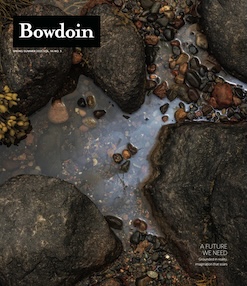
This story first appeared in the Spring 2025 issue of Bowdoin Magazine. Manage your subscription and see other stories from the magazine on the Bowdoin Magazine website.
